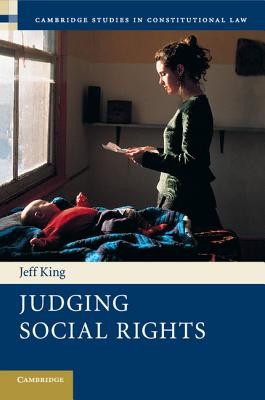
- We will send in 10–14 business days.
- Author: Jeff King
- Publisher: Cambridge University Press
- ISBN-10: 1107400325
- ISBN-13: 9781107400320
- Format: 15.2 x 22.6 x 2 cm, softcover
- Language: English
- SAVE -10% with code: EXTRA
Reviews
Description
Countries that now contemplate constitutional reform often grapple with the question of whether to constitutionalize social rights. This book presents an argument for why, under the right conditions, doing so can be a good way to advance social justice. In making such a case, the author considers the nature of the social minimum, the role of courts among other institutions, the empirical record of judicial impact, and the role of constitutional text. He argues, however, that when enforcing such rights, judges ought to adopt a theory of judicial restraint structured around four principles: democratic legitimacy, polycentricity, expertise and flexibility. These four principles, when taken collectively, commend an incrementalist approach to adjudication. The book combines theoretical, doctrinal, empirical and comparative analysis, and is written to be accessible to lawyers, social scientists, political theorists and human rights advocates.
EXTRA 10 % discount with code: EXTRA
The promotion ends in 16d.21:24:03
The discount code is valid when purchasing from 10 €. Discounts do not stack.
- Author: Jeff King
- Publisher: Cambridge University Press
- ISBN-10: 1107400325
- ISBN-13: 9781107400320
- Format: 15.2 x 22.6 x 2 cm, softcover
- Language: English English
Countries that now contemplate constitutional reform often grapple with the question of whether to constitutionalize social rights. This book presents an argument for why, under the right conditions, doing so can be a good way to advance social justice. In making such a case, the author considers the nature of the social minimum, the role of courts among other institutions, the empirical record of judicial impact, and the role of constitutional text. He argues, however, that when enforcing such rights, judges ought to adopt a theory of judicial restraint structured around four principles: democratic legitimacy, polycentricity, expertise and flexibility. These four principles, when taken collectively, commend an incrementalist approach to adjudication. The book combines theoretical, doctrinal, empirical and comparative analysis, and is written to be accessible to lawyers, social scientists, political theorists and human rights advocates.


Reviews